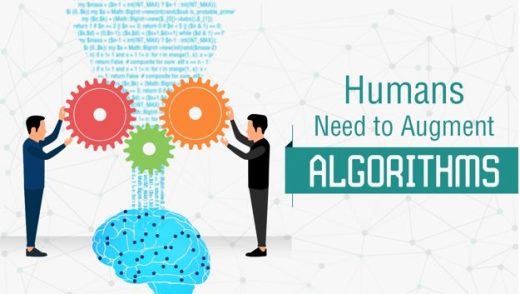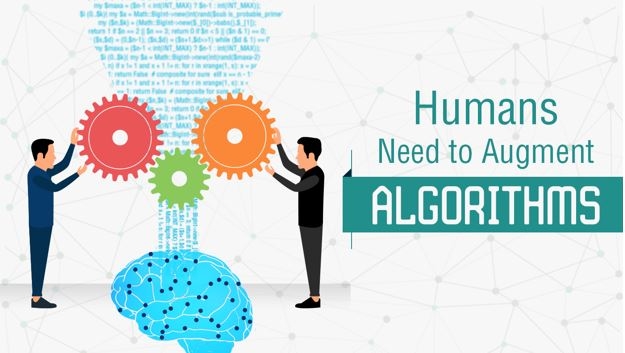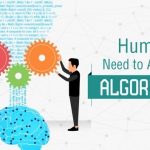The Role of AI in Assisting Customer Experience
The Role of AI in Assisting Customer Experience
To track all of the most relevant companies in the Intelligent Assistance ecosystem, refer to the “Intelligent Assistance and Bot” landscape provided by VB Profiles and Opus Research.
From being the plots of sci-fi thrillers to being seen as threats by the working populace, Artificial Intelligence (AI) has during the last few years jumped into the headlines as it has become a part of reality.
People are confused – AI is either considered to be a giant leap towards modernization or a leap towards massive levels of unemployment. It can turn out to be a sign of prosperity for many, thought of as a loyal servant, or it can turn the tide and become the master. The future of AI and what it transpires into, lies in the hands of those controlling the characteristics that bind this innovation.
With AI, the horizons have greatly broadened. We can now imagine and think of ideas which might have made you a laughing stock a few years ago. From a computer system playing chess with the masters to driverless cars, the possibilities associated with AI are many.
How Machine Learning (ML) and AI Augment Humans
The debate regarding the role of AI in augmenting human capabilities has been around for quite a while now. There are numerous theories regarding the myriad of opportunities presented by AI when it comes to augmenting humans.
For numerous tasks, machines outperform the human brain. The superiority of machines over humans can be specifically understood through their handling of work with regard to speed and scale of computation. The completion of most major tasks involves several components, such as prediction, data gathering, judgment, and then the action taken. Humans are still better than machines at judgment.
Considering the high skill levels of machines with AI, the technology can be used in numerous fields to expand human capabilities, to optimize the use of resources, and to enhance productivity. A few of the industries which benefit and can benefit even more with the use of AI are:
See Also: How machine learning is revolutionizing digital enterprises
Everyday Living
The use of Amazon Alexa comes to mind when you think of how AI can assist and automate our everyday life. Alexa, a device by Amazon that can take commands and enact them, is considered to be well ahead of its time. A few of the demands that Alexa can take and follow are to set a timer, play music, and answer general questions among many other interactive features.
The more you use Alexa, the more it will adjust according to your speech patterns and your tone. All these analytics and data stored by Alexa on the cloud generates a better understanding of your preferences.
Moreover, smart sensors in collaboration with the Internet of Things (IoT) are also making everyday living easier for humans. These smart sensors take input from the environment beside them and then follow built-in resources to carry out predefined functions. They also make sure of better collection of data, and are used in numerous analytics centers.
Manufacturing
Manufacturing businesses can largely benefit from the help of intelligent and collaborative robots that safely work with humans and handle tasks that are normally considered repetitive, unsafe, and difficult. This collaboration from robots is already in its implementation phase, and can further be improved in the near future.
Enterprise
Robotic technology that assists in managing and automating repetitive and mundane tasks is happening across numerous functions and is expected to penetrate deeper during the next decade. Wearables with Augmented Reality will help accomplish tasks that are expensive or unsafe in the world nowadays.
Transportation and Logistics
There is a fierce race between various technology companies to achieve fully automated vehicles. Even with this very public race, and technologists refuse to shied away from the possibility of innovations in this regard.
While fully automated vehicles are expected in the future, there is an opportunity for reduced driving load in mundane situations such as driving long distances on highways. This assistance will help reduce error rates, and result in better fuel efficiency and traffic flow.
Over time, numerous advancements will affect the fabric of urban life, to create previously nonexistent opportunities for urbanites.
Healthcare
Machines with inherent abilities and knowledge can help medical professionals and doctors come up with wider, more accurate, and personalized diagnosis techniques. Humans with the help of AI will better manage the flow of patients and senior citizens requiring a monotonous medicine regime.
Agriculture
Numerous farming robots, automated irrigation systems, pest warning systems, and crop optimization methods boosted agriculture. These practices will help reduce the burden from humans and will also help increase agricultural productivity.
The Change in Retail
Imagine if a device on your coffee table could tell just how much of your supplies are left and where you could get them at the cheapest rates. Once you confirm your order, the device would let you know when you can pick them up from the retailer. While AI has useful applications in many other areas as well, its suitability in retail is such that it looks like it was crafted for this purpose. Giants such as Amazon, Apple, and Google are exceeding all consumer expectations by delivering the unexpected with the aid of AI.
The responsiveness of retail is at a peak, and people like every bit of it. Predicting the need for a product or service, just when you require it, is what makes AI perfect for retail. The use of such technology though depends on predictive retail. Research and authentic data suggests that predictive retail has been used by retail firms for the last 2-3 years. The smart assistants of the next generation will predict information based on the habits of the user, and make a smart guess as to what will be required, when it will be required, and where.
See Also: How retailers will use emotion AI — online and in store
Humans Need to Augment Algorithms
The one bit of blame on old school AI was that it did not adapt to changing times and follow the environment. AI could not understand its environment, and there was a serious lack of adjusting to trends.
With the addition of Machine Learning (ML), AI can now adapt to the changing environment and predict how user preferences can vary because of that. Examples of ML can be found in healthcare where patients can be differentiated on the basis of what disease they are suffering from. ML, through its advancements in judging the environment, can predict the symptoms of a disease and form a solution based on its knowledge.
However, it is imperative that the algorithms and control of AI be democratized and provided to all stakeholders. The algorithms will work best when they are augmented and controlled by humans. This assistance and control will pave the way for better control and management over the algorithms that define Artificial Intelligence. While the future holds a lot, it can be safely said that AI, once implemented, will open doors to endless opportunities and possibilities.
About the Author
Ronald van Loon is an Advisory Board Member and Big Data & Analytics course advisor for Simplilearn. He contributes his expertise towards the rapid growth of Simplilearn’s popular Big Data & Analytics category.
If you would like to read more from Ronald van Loon on the possibilities of Big Data and Artificial Intelligence please click “Follow” and connect on LinkedIn and Twitter.
The post The Role of AI in Assisting Customer Experience appeared first on ReadWrite.
(49)














